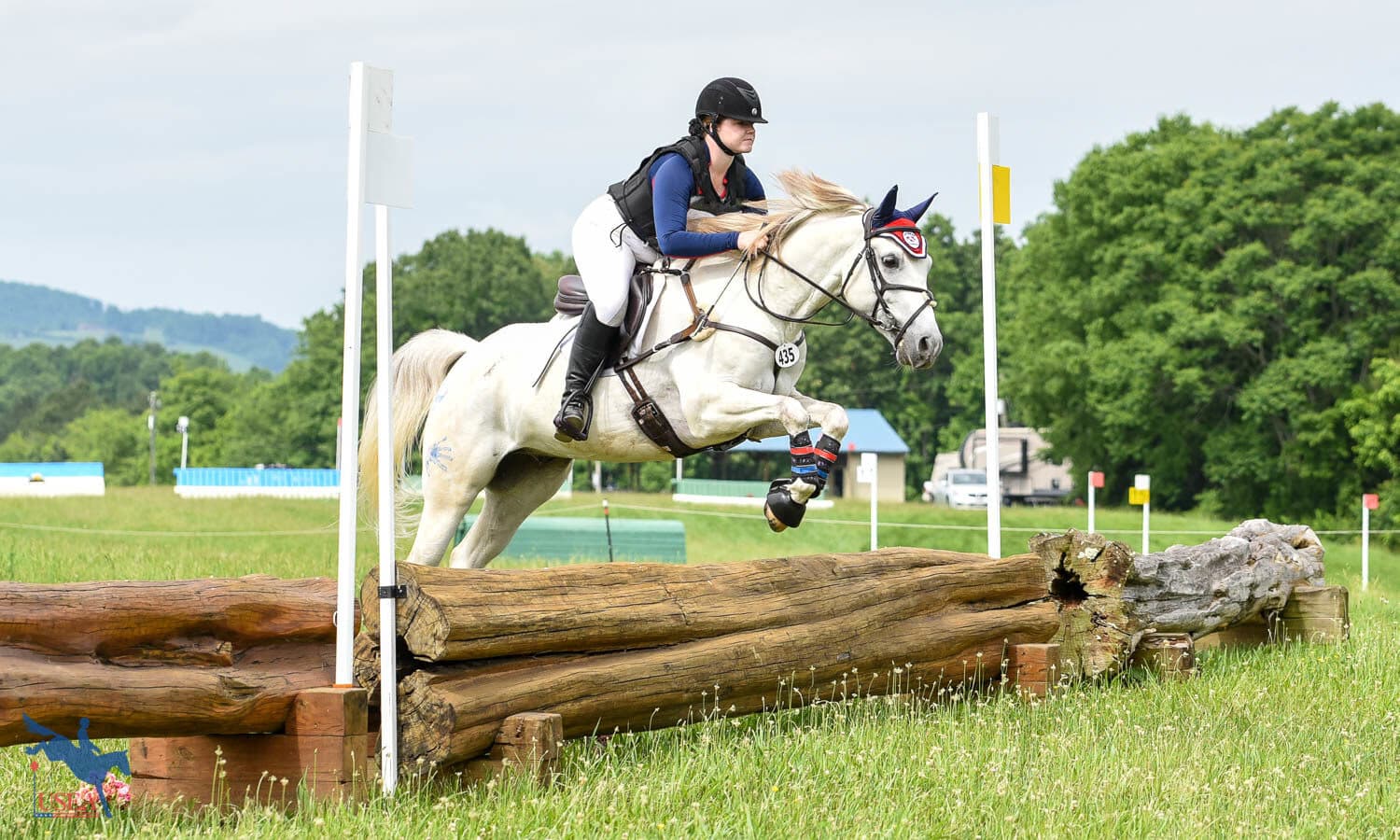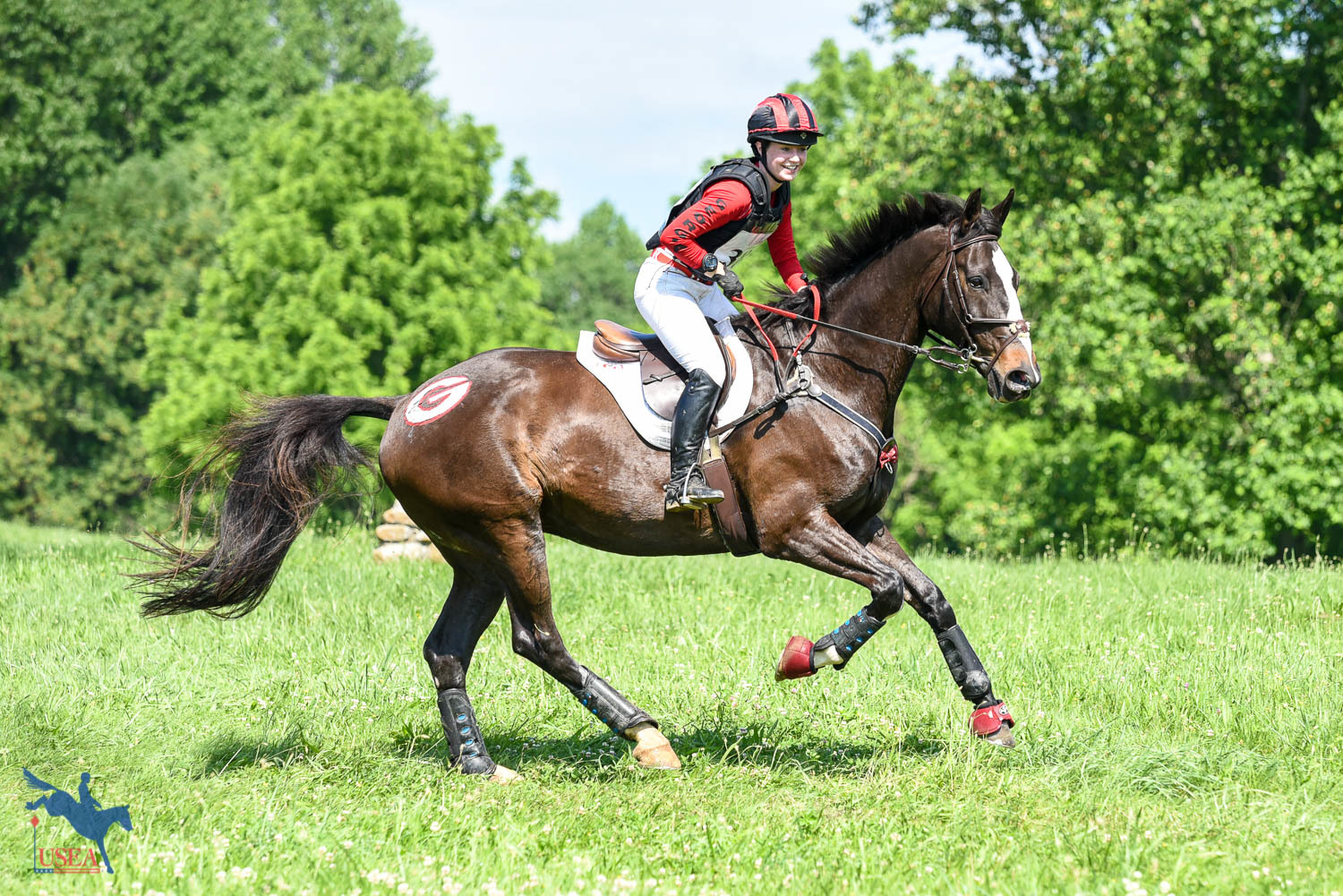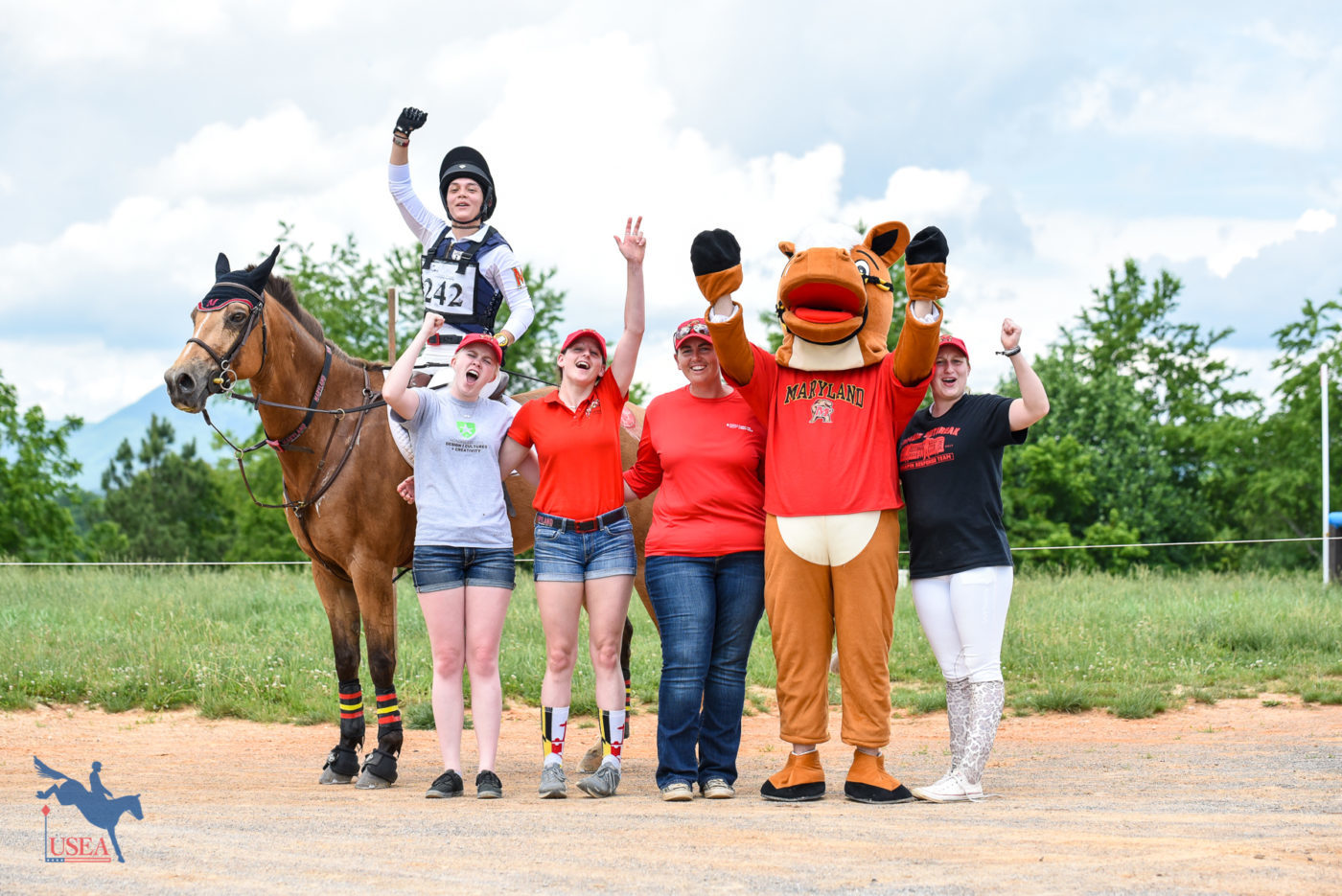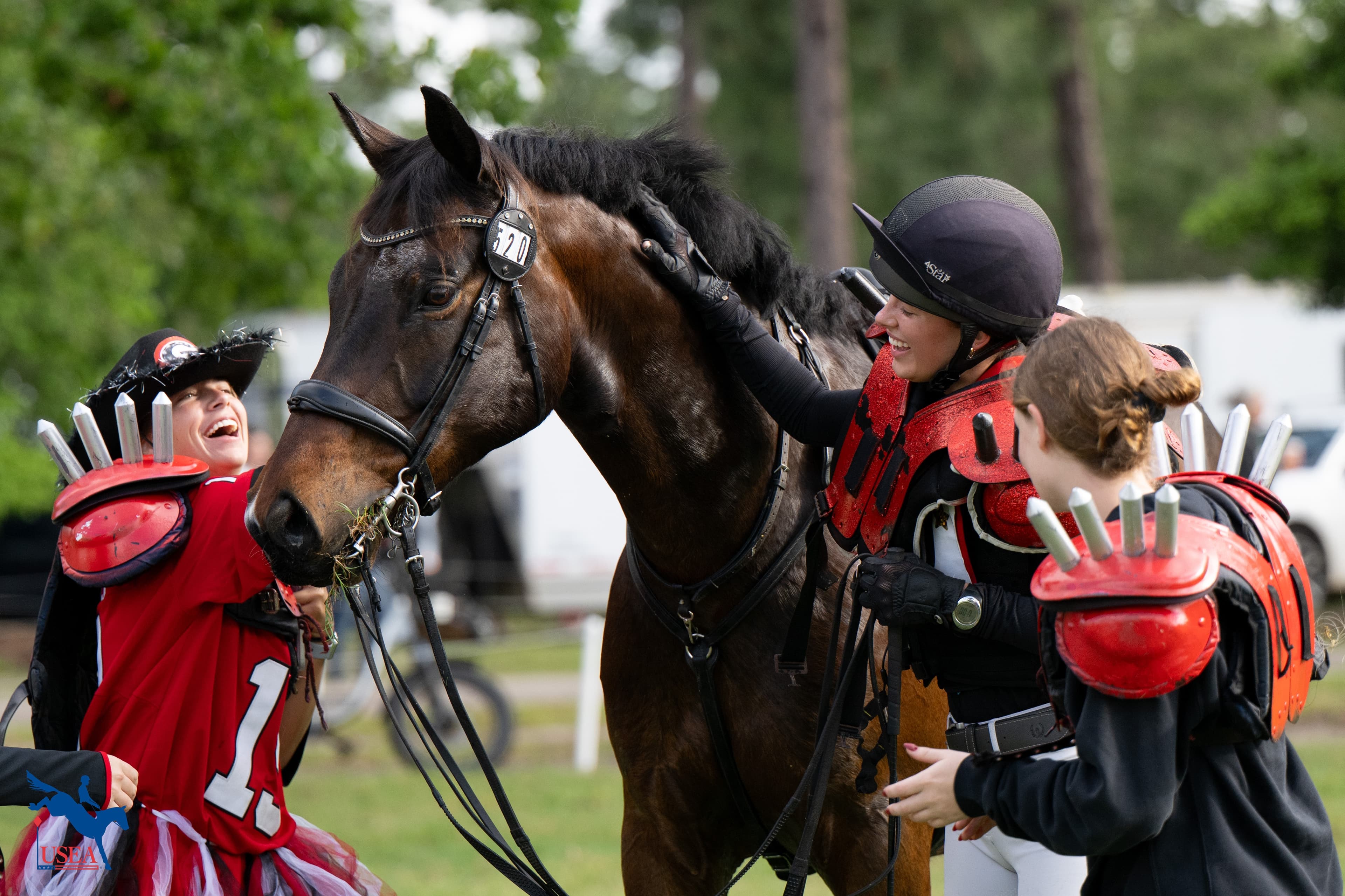Introducing the USEA Intercollegiate Eventing Handbook & Updated Championship Guidelines

The USEA and Intercollegiate Committee are pleased to introduce the recently completed USEA Intercollegiate Eventing Handbook. Contained within these pages is everything you need to know about the USEA Intercollegiate Program as well as membership benefits and guides for forming teams and hosting team challenges. Much of this information was already available on the USEA website. Now it has been condensed into one convenient, linkable location.
There is some new information available in the Handbook, including collegiate membership restrictions and guidelines and eligibility requirements for the USEA Intercollegiate Eventing Championship.
Collegiate Membership
Currently, any individual who is a current undergraduate student at a university or college that is an Affiliate of the USEA is eligible to receive a $25 discount on their annual USEA membership.
Beginning in 2019, undergraduate students are eligible to maintain a collegiate membership and receive the discount for a total of five school years, which may be nonconsecutive. There is no age restriction on eligibility for current undergraduate students.

Intercollegiate Championship
The USEA Intercollegiate Championship has run for three years with great success and always increasing participation. To uphold the mission of the program and ensure fairness, the Committee established these guidelines and eligibility requirements for those students interested in participating at the Championship.
These policies will apply to the 2019 USEA Intercollegiate Championship at Chattahoochee Hills, May 17-19, 2019. Please read them carefully!
- There are no qualifications necessary for this Championship but schools represented must be registered Affiliates of the USEA.
- Students must be enrolled as undergraduate students and be active USEA Collegiate Members in good standing. *Exception: students may compete in the Championship up to six months after graduating, allowing December graduates to compete in the Championship in May.
- Students must have attended classes for at least one semester; incoming freshman, even if they are enrolled for the fall, are not eligible to compete.
- A student may not compete more than one horse on a team. If a student has an additional horse(s) entered in the competition, they may compete on a school’s second team or a scramble team.
- Graduate students may attend the Championship and compete on a Graduate team. The Graduate team championship divisions will be scored and awarded separately from the Championship for undergrads. Graduate participants must represent a school that is a USEA Affiliate.
- Undergraduates who have exceeded the five-year eligibility restriction must compete on a Graduate team.
- Participants must enter the team Championship as individuals through the event’s designated entry system. A team representative from each institution must then submit a tentative team roster for the Championship to the event organizer or designated team coordinator no later than the closing date for the event.
- Scramble or scratch teams (multiple schools represented on the same team) may participate in the Championship. Students may request to be on a specific scramble team and/or the organizer/team coordinator may design the scramble teams. A spot on a scramble team is dependent upon entries and not always guaranteed.
- Definite team rosters must be provided by noon the Monday prior to the start of the Championship. Any changes from the previously provided tentative roster may not affect another college or university team structure (e.g. moving a horse from a scratch team). This is to ensure that all eligible students who are entered in the event and expressed interest to participate in the Championship may do so.
- Absolutely no substitutions or changes may be made to any team after the first horse inspection (for events including FEI divisions) or 3:00 p.m. the day prior to the first day of dressage if there is no horse inspection.

Adjusted Coefficients
Based on feedback from students, the Committee has made a slight adjustment to the coefficients used for team scoring at the Intercollegiate Championship. Coefficients are applied to a rider’s score to account for level of difficulty. In the past, Beginner Novice received a coefficient of 1.1 and Novice received a coefficient of 1. Beginning at the 2019 Championship, Beginner Novice scores will receive a coefficient of 1, and Novice will receive a coefficient of .99. The reason for this adjustment is because the majority of Championship competitors compete at the Beginner Novice through Training levels and the feedback received indicated that teams were being ‘penalized’ for every Beginner Novice rider on the team.
The new coefficient system that will be applied at the Championship is as follows:
- Beginner Novice: 1
- Novice: .99
- Training: 0.9
- Preliminary: 0.85
- Intermediate: 0.75
- CCI2*-S (former CIC*): 0.8
- CCI2*-L (former CCI*): 0.75
- CCI3*-S (former CIC2*): 0.70
If Modified is offered at the Championship, a coefficient of 0.95 will apply to Training level and 0.9 will apply to Modified.

Championship Venues
Just as a reminder, the 2019 and 2020 Championships will take place in May at the Chattahoochee Hills Horse Trials in Fairburn, Georgia. The 2021 and 2022 Championships will take place at Virginia Horse Trials in Lexington, Virginia on Memorial Day weekend. Mark your calendars!
About the USEA Intercollegiate Program
The USEA Intercollegiate Eventing Program was established in 2014 to provide a framework within which eventing teams and individual competitors could flourish at universities and colleges across the country. The USEA offers a discount of $25 on annual USEA memberships for current students of universities and colleges registered as Affiliates with the USEA and many events across the country now offer Intercollegiate Team Challenges throughout the year, where collegiate eventers can compete individually as well as on teams with their fellow students. In Intercollegiate Team Challenges, each rider’s score is multiplied by a coefficient appropriate for their level to account for differences in level difficulty and then the individual scores are added together to determine the team score.Click here to learn more about the USEA Intercollegiate Eventing Program.
Click here to view the USEA Intercollegiate Eventing Handbook.















